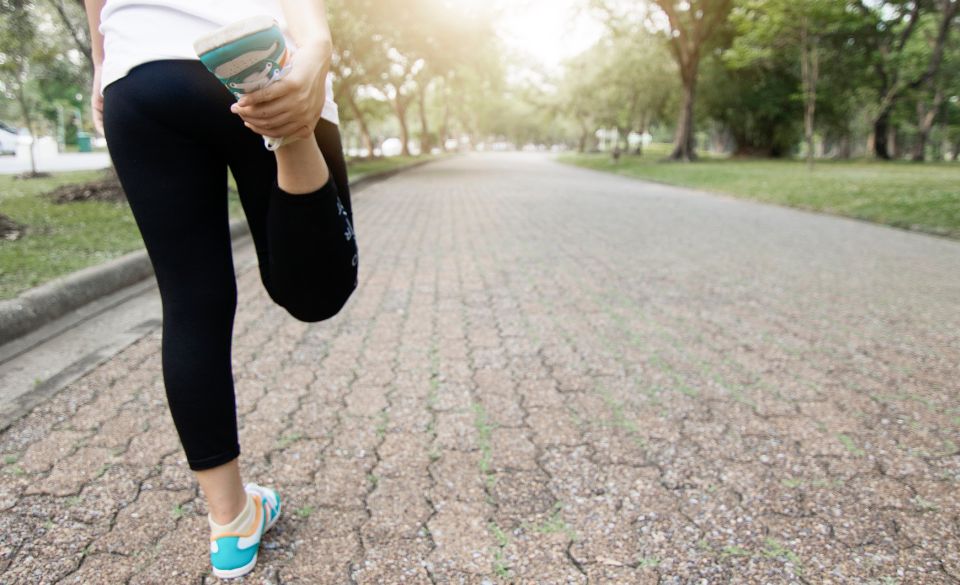
Why Do Your Legs Feel Heavy While Running? A Complete Guide
Page Contents
Running is a fantastic way to stay fit, clear your mind, and enjoy the great outdoors. But what happens when you lace up your sneakers, start your run, and suddenly your legs feel like they’re carrying the weight of the world? That sensation of heavy legs while running is something many runners experience, and it can be quite frustrating. In this comprehensive guide, we’ll explore the various factors that can cause your legs to feel heavy during a run and offer practical solutions to help you overcome this challenge. So, if you’ve ever wondered why your legs seem to betray you on the road or trail, keep reading to find the answers you need.
Understanding the Science Behind Heavy Legs
Before we delve into solutions, let’s take a moment to understand why your legs might feel like lead weights during a run. Several physiological factors come into play, and it’s essential to grasp the science behind it.
1. Muscle Fatigue
Muscle fatigue is a primary contributor to heavy legs while running. When you run, your muscles contract and relax repeatedly. Over time, this continuous contraction can lead to the accumulation of metabolic waste products, such as lactic acid, which can make your muscles feel heavy and tired.
2. Dehydration
Dehydration can have a profound impact on your performance. When you’re not adequately hydrated, your muscles may cramp, and your blood flow can become sluggish, causing your legs to feel heavy. A study published in the “Journal of Athletic Training” found that even mild dehydration can impair endurance performance.
3. Insufficient Warm-up
Skipping or having a poor warm-up routine can also lead to heavy legs. A proper warm-up increases blood flow to your muscles, making them more pliable and ready for action. Without it, you might experience stiffness and heaviness.
4. Inadequate Nutrition
Nutrition plays a vital role in your running performance. If you haven’t fueled your body properly before your run or during long-distance runs, your muscles may not have the energy they need to function optimally, leading to that unwelcome feeling of heavy legs.
Practical Strategies to Combat Heavy Legs
Now that we’ve uncovered some of the reasons behind heavy legs while running, let’s explore practical strategies to help you overcome this challenge and enjoy your runs more fully.
1. Gradual Progression
Avoid pushing yourself too hard too soon. Gradual progression in your running routine allows your muscles to adapt to the demands of running, reducing the likelihood of muscle fatigue. Start with shorter distances and slower paces, gradually increasing the intensity and duration of your runs.
2. Proper Hydration
Stay well-hydrated before, during, and after your runs. Carry a water bottle or plan your routes near water fountains. Sports drinks containing electrolytes can be especially beneficial for longer runs as they help maintain proper muscle function.
3. Effective Warm-up and Cool-down
Invest time in a proper warm-up and cool-down routine. Before your run, perform dynamic stretches and exercises to get your blood flowing and muscles prepared. After your run, perform static stretches to help reduce post-run muscle tightness.
4. Balanced Nutrition
Fuel your body with the right nutrients. Consume a balanced diet rich in carbohydrates, protein, and healthy fats to ensure your muscles have the energy they need. Consider eating a light meal or snack about an hour before your run to provide sustained energy.
How Weather Can Make Your Legs Feel Heavy While Running
Weather plays a significant role in how we experience our runs. While the impact of weather on running is widely discussed, one aspect that often goes overlooked is how specific weather conditions can make your legs feel heavy during a run. In this article, we’ll explore the various ways weather can influence the sensation of heavy legs and provide tips to help you adapt to different weather challenges, so you can enjoy your runs more comfortably.
Heat and Humidity
When the sun is blazing, and the humidity is high, it’s not uncommon for runners to experience heavy legs. Here’s why:
1. Dehydration
In hot and humid conditions, your body sweats more to cool down, leading to increased fluid loss. If you don’t replenish those lost fluids through proper hydration, your muscles can cramp, and you might experience a sensation of heaviness in your legs.
2. Increased Heart Rate
Your heart has to work harder to maintain the same pace in hot weather. As a result, your legs can feel heavier due to the increased cardiovascular demands. This added strain can make your runs more challenging and uncomfortable.
Tip: To combat heavy legs in hot weather, prioritize staying hydrated before, during, and after your run. Consider running during cooler parts of the day, such as early morning or late evening, to avoid the peak heat.
Cold and Wind
On the flip side, cold and windy weather can also contribute to heavy legs. Here’s how:
1. Muscle Tightness
Cold weather can cause your muscles to tighten up, reducing their flexibility and making them feel heavy. It’s like running with stiff, resistant legs, which can slow you down and affect your performance.
2. Wind Resistance
Running against a strong headwind can be physically demanding. The resistance from the wind can force your leg muscles to work harder, leading to quicker fatigue and a sensation of heaviness.
Tip: Dress appropriately for cold weather by wearing layers to keep your muscles warm. Consider wind-blocking clothing to reduce wind resistance. Prioritize a thorough warm-up to help loosen tight muscles.
Rain and Wet Conditions
Running in rainy or wet conditions can present unique challenges for your legs:
1. Slippery Surfaces
Wet pavement or trails can be slippery, requiring more effort and stability from your leg muscles to maintain your balance. This added effort can lead to fatigue and the sensation of heavy legs.
2. Cold and Wet Feet
Running with wet, cold feet can be uncomfortable and distracting. This discomfort can make you more aware of your legs, potentially exaggerating the feeling of heaviness.
Tip: Choose appropriate footwear with good traction for wet conditions. Consider moisture-wicking socks to keep your feet dry. Pay extra attention to your running form to minimize slipping.
How Diet Can Make Your Legs Feel Heavy When Running
When it comes to running, your diet is a crucial factor that can significantly influence your performance. What you eat (or don’t eat) before and after a run can impact how your legs feel during your workout. In this article, we’ll explore how your diet can make your legs feel heavy when running and provide tips on maintaining optimal nutrition to enhance your running experience.
Lack of Proper Pre-Run Fuel
One of the primary ways your diet can contribute to heavy legs during a run is by not providing your body with the necessary fuel before you hit the pavement. Running on an empty stomach or with inadequate nutrition can lead to sluggishness and a sense of heaviness in your legs. Here’s why:
1. Depleted Glycogen Stores
Glycogen is the stored form of carbohydrates in your muscles and liver, which serves as a critical energy source during exercise. Running without sufficient glycogen can lead to early muscle fatigue and a feeling of heaviness in your legs.
2. Low Blood Sugar
If you haven’t eaten in several hours before your run, your blood sugar levels may be low. This can result in decreased energy levels and a lack of endurance, causing your legs to feel heavy.
Tip: To avoid heavy legs due to inadequate pre-run fuel, consume a balanced meal or snack 1-2 hours before your run. Include carbohydrates for energy, some protein for muscle support, and healthy fats for sustained energy.
Poor Hydration
Hydration is another critical aspect of your diet that can impact your running performance. Insufficient fluid intake can lead to heavy legs for several reasons:
1. Dehydration
Dehydration can cause your muscles to cramp and become less efficient. When you’re dehydrated, your legs may feel heavy, and your performance can suffer.
2. Thickened Blood
Inadequate hydration can lead to thicker blood, making it harder for your cardiovascular system to deliver oxygen to your muscles. This can result in early fatigue and heavy legs.
Tip: Maintain proper hydration by drinking water throughout the day, and consider consuming an electrolyte drink or sports drink if you’ll be running for an extended period in hot conditions.
Post-Run Nutrition Neglect
Your diet doesn’t stop when you finish your run. Neglecting your post-run nutrition can also contribute to heavy legs:
1. Failure to Replenish Glycogen
After a run, your glycogen stores are partially depleted. If you don’t refuel with carbohydrates and protein, your muscles won’t recover efficiently, leading to heavy legs in subsequent workouts.
2. Inadequate Recovery
Proper post-run nutrition supports muscle recovery. Without it, your legs may remain fatigued and heavy, making it challenging to perform at your best.
Tip: Consume a balanced meal or snack within 30-60 minutes after your run, focusing on carbohydrates to replenish glycogen and protein to support muscle repair.
Conclusion: Enjoy Lighter Legs and Better Runs
Heavy legs while running can be a frustrating obstacle, but armed with knowledge and the right strategies, you can overcome this challenge. Remember that it’s essential to listen to your body, avoid overexertion, stay hydrated, warm up effectively, and nourish yourself adequately. By implementing these strategies, you’ll be well on your way to enjoying lighter legs and more enjoyable runs.



